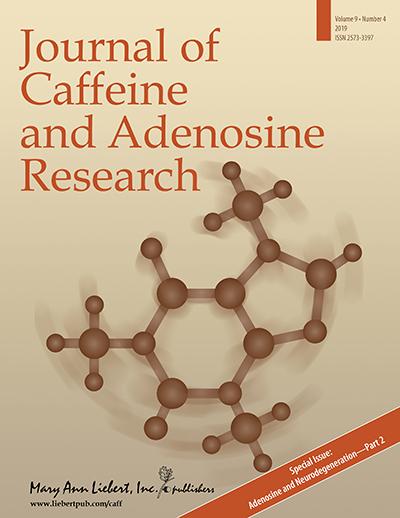
Credit: Mary Ann Liebert, Inc., publishers
New Rochelle, NY, January 13, 2020–Researchers are using caffeine to study how the brain processes information, and a new study shows the effectiveness of this approach. A placebo-controlled study in adults, which uses a simple Go/NoGo task, is published in Journal of Caffeine and Adenosine Research, a peer-reviewed journal from Mary Ann Liebert, Inc., publishers. Click here to read the full-text article free on the Journal of Caffeine and Adenosine Research website until February 15, 2020.
The article entitled “Caffeine as a Tool to Explore Active Cognitive Processing Stages in Two-Choice Tasks” was coauthored by Robert Barry, Jack Fogarty, and Frances De Blasio , University of Wollongong, Australia. In the cross-over study, one group of adults was given 250 mg of caffeine before completing a Go/NoGo task, in which they heard one of two tones. If they heard the “Go” target tone, they were to push a button. If they heard the “NoGo” tone they had to process that information and not push the button. The researchers used electroencephalography to measure event-related potential components and explore sequential processing in the individuals with and without caffeine. The study produced a number of novel outcomes, showing caffeine to be a useful tool
“A particularly significant finding of this study, performed in adults, is the qualitatively different effect of caffeine during the processing of a Go/NoGo task as compared to the results of a previous study by the same research group in children, providing new clues about the different cognitive strategies used by adults and children and their dependence on the adenosine system,” says Journal of Caffeine and Adenosine Research Editor-in-Chief Sergi Ferré, MD, PhD, Chief of the Integrative Neurobiology Section at the National Institute on Drug Abuse, National Institutes of Health, Baltimore, MD.
###
About the Journal
Journal of Caffeine and Adenosine Research is the first and only journal dedicated to the rapidly advancing field of caffeine and adenosine signaling research. Published quarterly in print and online and led by Sergi Ferré, MD, PhD , Integrative Neurobiology Section, National Institute on Drug Abuse, National Institutes of Health (Baltimore, MD), the Journal addresses the need for an authoritative source on caffeine and adenosine’s role in biological processes. The Journal encompasses all aspects of adenosine, from the molecular structure and function of receptors, enzymes, and transporters, to the biochemistry, physiology, and pharmacology of adenosine signaling; from the physiological role of adenosine in neuromodulation, inflammation, and innate immunity, to its pathophysiological role in neuropsychiatric disorders and cancer.
Tables of content and a sample issue may be viewed on the Journal of Caffeine and Adenosine Research website.
About the Publisher
Mary Ann Liebert, Inc., publishers is a privately held, fully integrated media company known for establishing authoritative peer-reviewed journals in many promising areas of science and biomedical research, including Cannabis and Cannabinoid Research, Journal of Medicinal Food, and Journal of Women’s Health. Its biotechnology trade magazine, GEN(Genetic Engineering & Biotechnology News), was the first in its field and is today the industry’s most widely read publication worldwide. A complete list of the firm’s 80 journals, books, and newsmagazines is available on the Mary Ann Liebert, Inc., publishers website.
Media Contact
Kathryn Ryan
[email protected]
914-740-2250
Original Source
https:/
Related Journal Article
http://dx.




